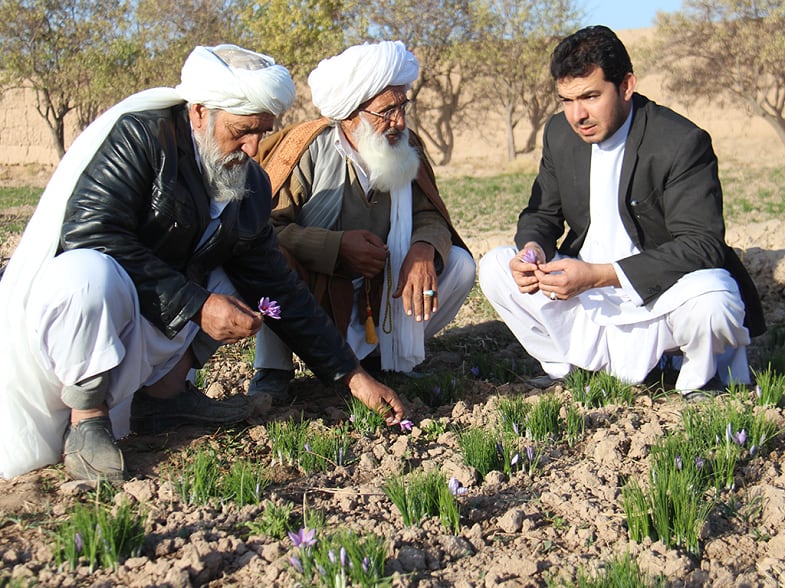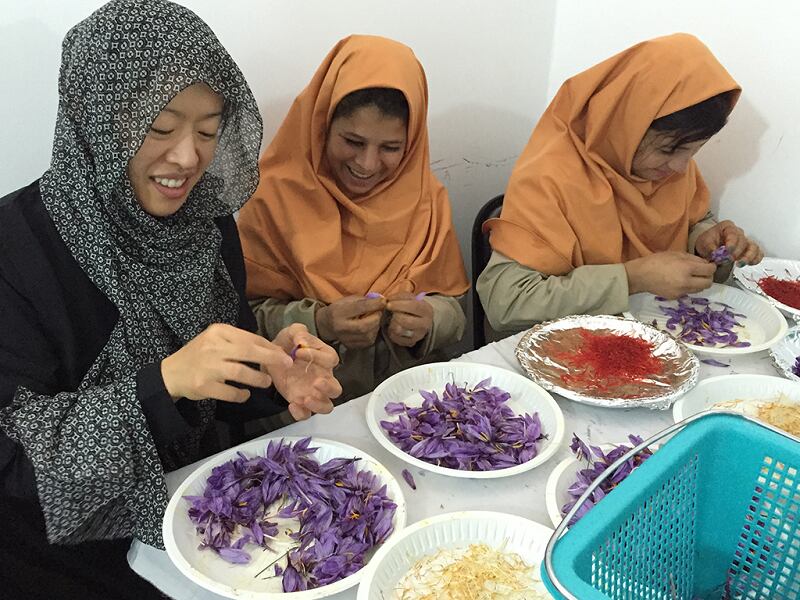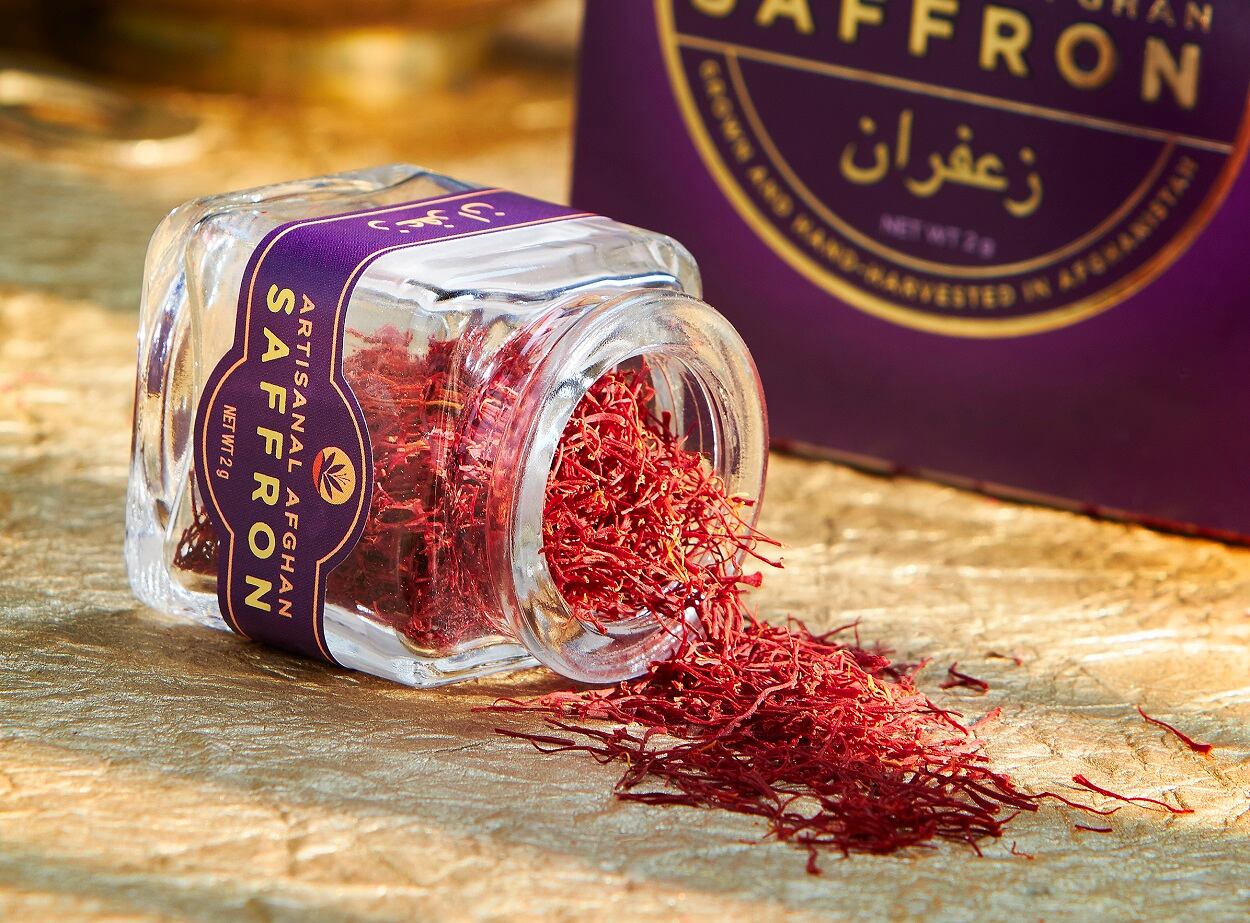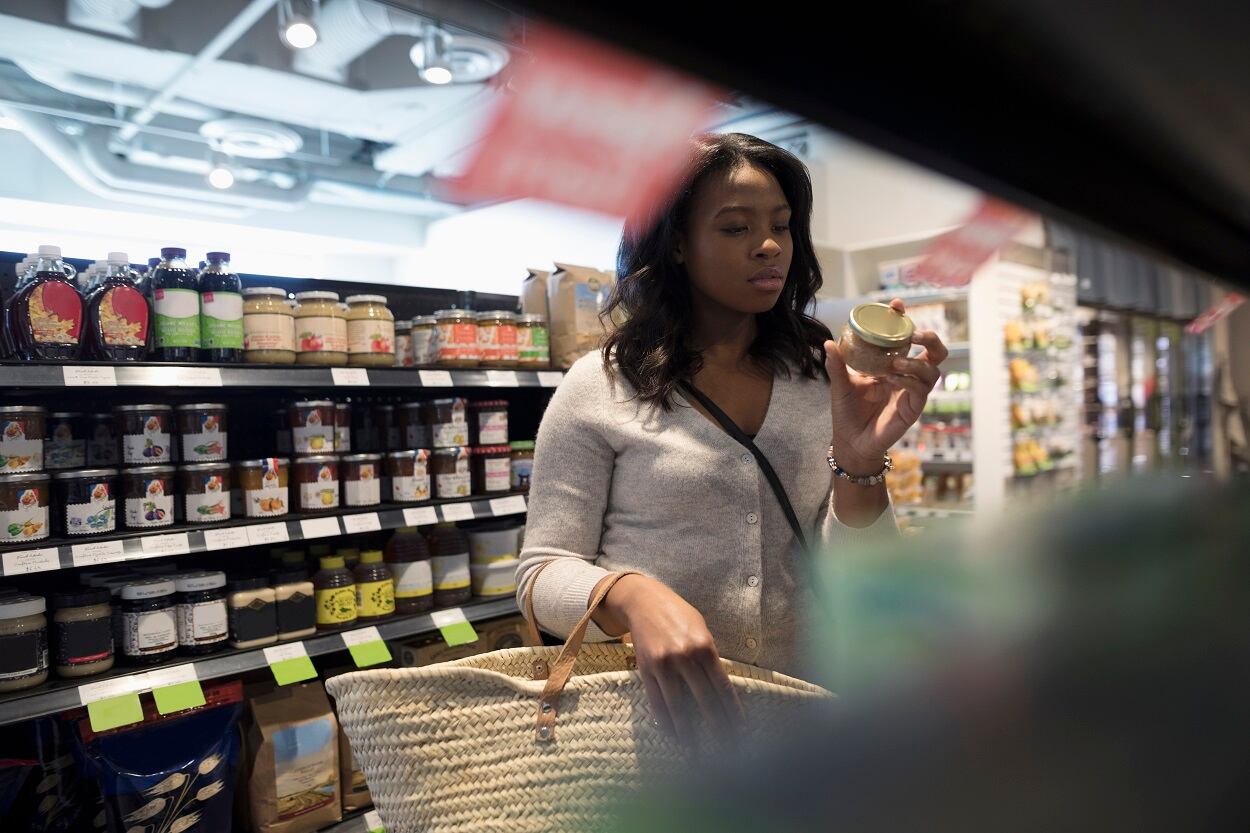Rumi Spice saffron products are also available in all Chicago-area Jewel Osco stores and online through its company website.
CEO and co-founder Keith Alaniz served in the US Army, spending four years in Afghanistan where he connected with a local saffron farmer Haji Yosef.
“There’s been something missing with how we’re approaching creating stability in a war-torn country. We’re just throwing money and troops there but no one’s paying attention to the development of the economy,” Alaniz told FoodNavigator-USA.
“My partners and I thought what if we could connect farmers in Afghanistan with US markets, we could drive value for the farmers. We’re trading value for value and creating this virtuous cycle of peace through business.”
Rumi Spice began in 2015 and now has a network of 350 saffron farmers who can now make up to six times their annual income and whose saffron production capacity is doubling and tripling each year.

According to Alaniz, increasing saffron production has another added benefit that can help establish peace and stability in some communities.
“Saffron is an alternative crop to opium. Afghanistan is the largest producer of opium and that’s caused a huge problem here in the US, and for Afghanistan, it fuels the Taliban insurgency,” he said.
“These farmers are not growing opium because they want to, they do it because of a lack of any other alternative,” he said.
Because saffron is so valuable by weight, many farmers can make six to ten times what they make growing opium by growing saffron, Alaniz added.
“We hope that a byproduct of creating demand for Afghanistan saffron is that it displaces opium production over time.”
Scaling production
Harvesting and processing saffron is very labor-intensive as it requires hand picking the threads from the crocus flower in which they grow and laying them out to dry before packing them for sale.
“A farmer’s family might be able to process 1 kg of saffron in a season – they can only produce so much,” Alaniz said.
Rumi Spice knew that in order to create a scalable business, it had to streamline its saffron processing methods in Afghanistan and create a system of quality control to meet international exporting standards, Alaniz added.
The company set up centralized processing centers for the supply of saffron flowers. Instead of buying the processed saffron from the farmers, Rumi Spice buys the flowers from farmers and hires local women who process the saffron at its processing facilities.
Rumi Spice was selected for the 2017 Chobani Incubator, which has helped the company hone its branding message and develop a product innovation pipeline.
“Hamdi (Chobani’s founder and CE0) inspired us to think of ourselves as 'spices as a source for good',” Alaniz said.
“We’re lining up the dominoes we’re bringing out our next product line.”
Its newest product line will be available in Q1 2019.
“That allows us to centralize the processing, we can maintain quality control over a lot of saffron, and it’s very scalable. We’re also able to provide training to workers so we can meet international standards of food safety for export,” Alaniz said.

“The added benefit is that it’s very empowering for Afghan women.”
Rumi Spice employs 1,900 Afghan women at is processing centers and pays them 1.5x the living in wage in Afghanistan, according to Alaniz.
Creating US demand
While setting up a scalable supply of saffron in Afghanistan was initially an obstacle Rumi Spice had to overcome, the real challenge now is tapping into the US market.
“Scaling the saffron supply in Afghanistan is really the easy part. The hard part is selling saffron here and continuing to create more and more demand,” Alaniz said.
Consumer education on how to properly use saffron has been critical to gaining brand awareness and consumer acceptance, Alaniz noted.
“We want to reach people that may not be familiar with how to use saffron, so we do a lot of consumer education in terms of how do you use saffron through recipes and demos,” he said.
“A little goes a long way. It has applications from sweet to savory dishes.”
In addition to its pure saffron product (2 gram bottle for $29.99 and 0.5 gram bottle for $8.99), Rumi Spice makes a line of spice blends such as its ‘paella spice blend’ to make cooking with the rare spice more approachable.
The company also hopes that the saffron’s purported anti-depressant and anti-oxidant properties as well as its cardiovascular benefits known throughout the Middle East, starts to catch on with American consumers who are becoming more interested in functional ingredients.
Its current consumer base tends to be older consumers who enjoy cooking at home, but the brand is starting to gain traction with a younger demographic who values its socially conscious mission, Alaniz added.
“We are starting to trend younger and younger. I think there’s a growing trend among younger consumers especially millennials caring about not only what you put in your body but the social impact of your purchasing decisions,” Alaniz said.




